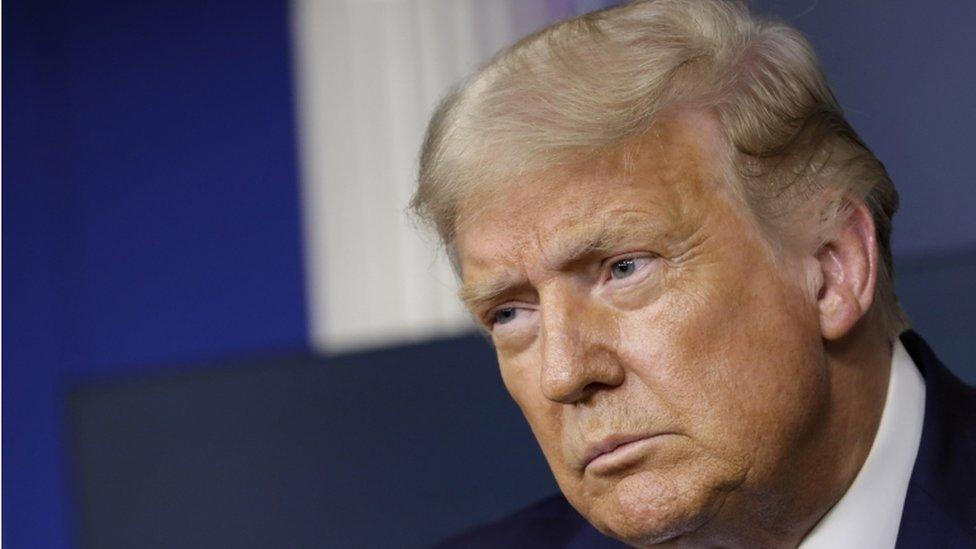US 2020 election: Social media's nightmare scenario
- Published
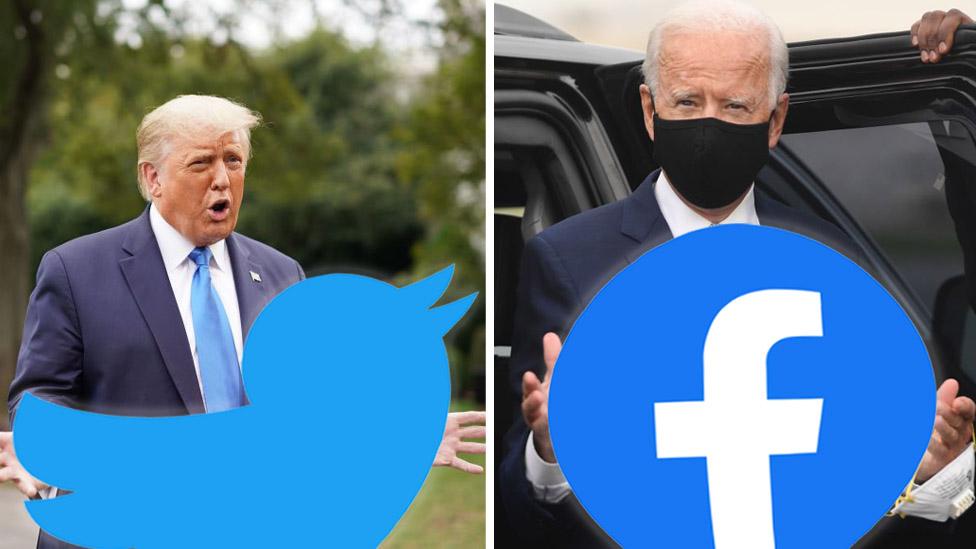
There's an election scenario that is giving social media company bosses nightmares.
The period between the polls closing and the declared result usually takes a few hours.
But this time it's likely to take days - perhaps even weeks. Millions of postal votes will take time to process.
Social media companies believe this period - of claim and counterclaim - could push the US over the edge.
If both Donald Trump and Joe Biden declare themselves the winner, there are fears of violence between the already polarised communities of the US.
And all of this could be played out on social media.
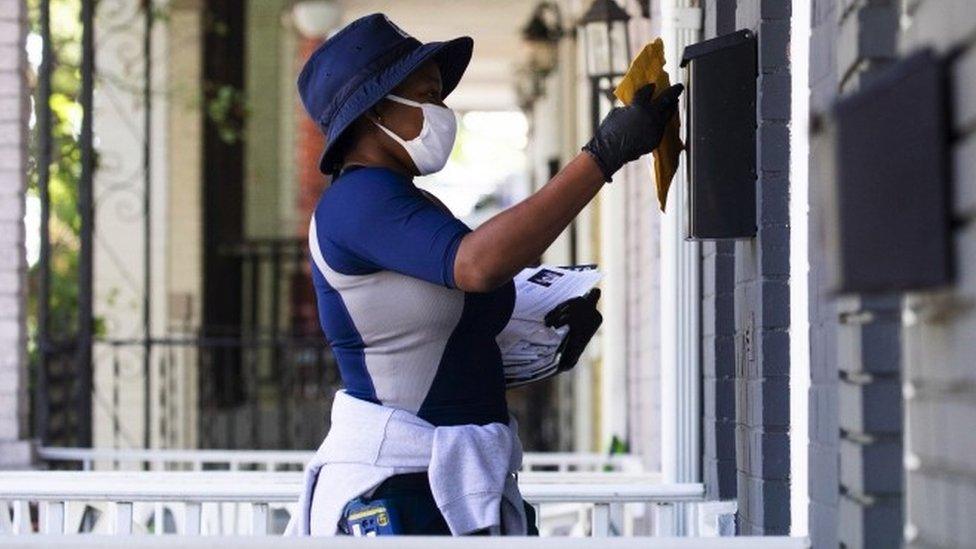
Three weeks ago, Facebook chief Mark Zuckerberg said he was "worried".
On Facebook he wrote, external: "With our nation so divided and election results potentially taking days or even weeks to be finalised, there could be an increased risk of civil unrest across the country."
In what may well be a first, several of the Big Tech companies have been working together to "scenario plan" different results of the vote.
They've essentially been war-gaming election night, external.
There's one scenario that worries the tech bosses: postal votes are expected to be weighted towards the Democratic candidate, while voting at the ballot box is expected to favour the incumbent Republican.
This is because Mr Trump has told his supporters to vote in person. He says the postal voting process is rigged (there is no evidence of this).
The Democrats, by contrast, have no such problem with encouraging postal voting.
As a result, these two ways of voting have become politically skewed.
This could create what is being coined as a "red mirage" on the night of the poll and a "blue shift" in the days after.
In this scenario, Mr Trump would "win" on the day because ballot box votes will have been counted.
But then, after the postal votes slowly rack up, Mr Biden would claw away at Mr Trump's lead.
Disputed result
What would Mr Trump do? Well almost everything he's said and tweeted thus far suggests he'd declare victory - or at the very least question the result.
"[We] must know election results on the night of the election, not days, months, or even years later!" he tweeted in July, external.
His constant talk of postal voting fraud also points to him questioning the final tally.
And last week he refused to commit to a peaceful transfer of power.
In fact, Mr Trump has already done something similar. During the Florida mid-term elections of 2018, as recounts were beginning to haul in a Republican majority, he tweeted the following:
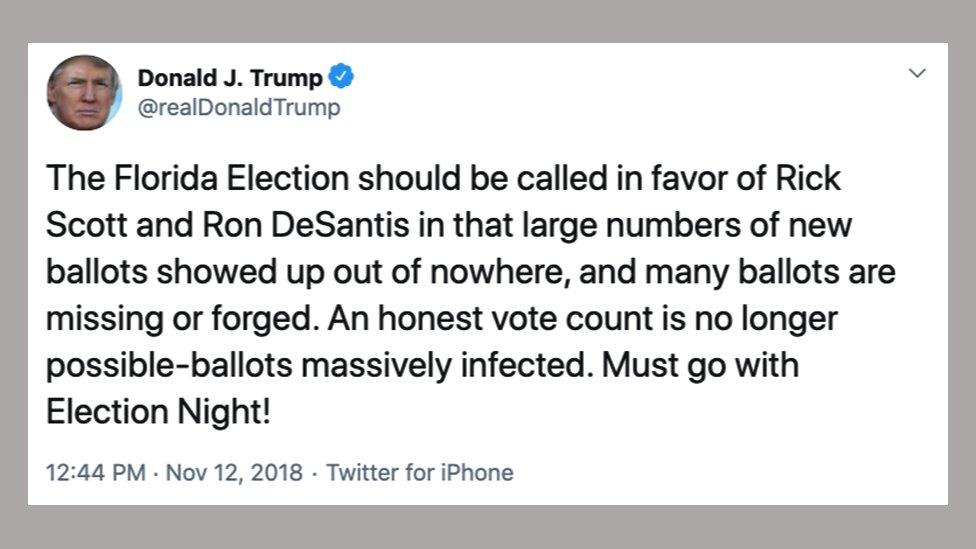
So the evidence points one way. Mr Trump doesn't want to hang around for all those postal votes to be counted.
This is where the Big Tech bosses come in.
If Mr Trump is going to declare victory, it's likely he'll do it via Twitter and Facebook.
And these platforms have said - unequivocally - that they will not allow him to do that.
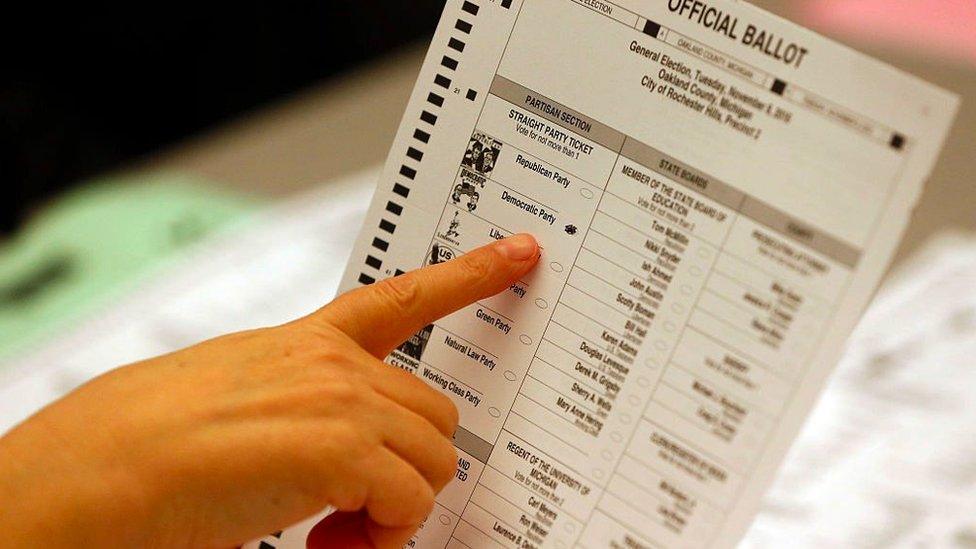
Election fraud in the US is believed to be very rare
Twitter has said, external it will "label or remove misleading information intended to undermine public confidence in an election… eg claiming victory before election results have been certified".
Facebook has said, external it will reject ads from US political campaigns prematurely claiming victory before results have been declared - and remove disinformation about the vote.
On Friday, news site Axios reported, external that Google would block election ads after election day as a response to this same concern.
So we now have this possibility: Mr Trump claims victory, but is blocked from spreading the word on social media.
Dangerous moment
This could create perhaps the most dangerous moment that any of these social media companies have faced.
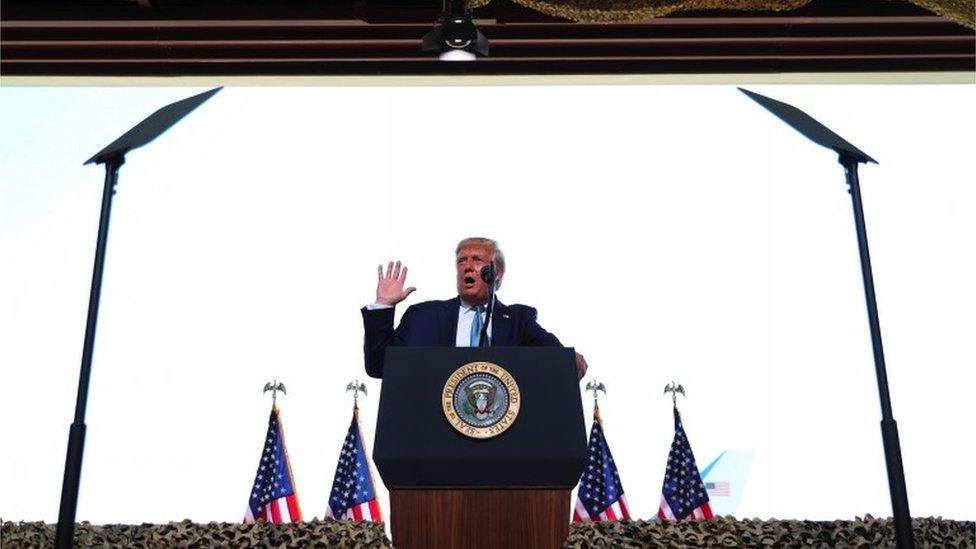
President Donald Trump claims the US could be heading towards its most corrupt election ever
They will have to censor potentially thousands of politically charged posts.
As passions intensify, the presidential candidates may vow revenge for decisions taken about what to leave up or take down that they disagree with.
What could Mr Trump do to punish them? Well in the future he could seek to repeal Section 230 - which protects social media companies from being responsible for the content people publish.
He's already indicated - through executive orders - that he's willing to do this.
Biden too could refuse to concede defeat - or go too far in claiming that Republicans are trying to "steal" the election.
And if Mr Biden wins but feels social media fanned the flames of division? Well there are many Democrats who are concerned with the power that these companies have. Some believe they should even be split up.
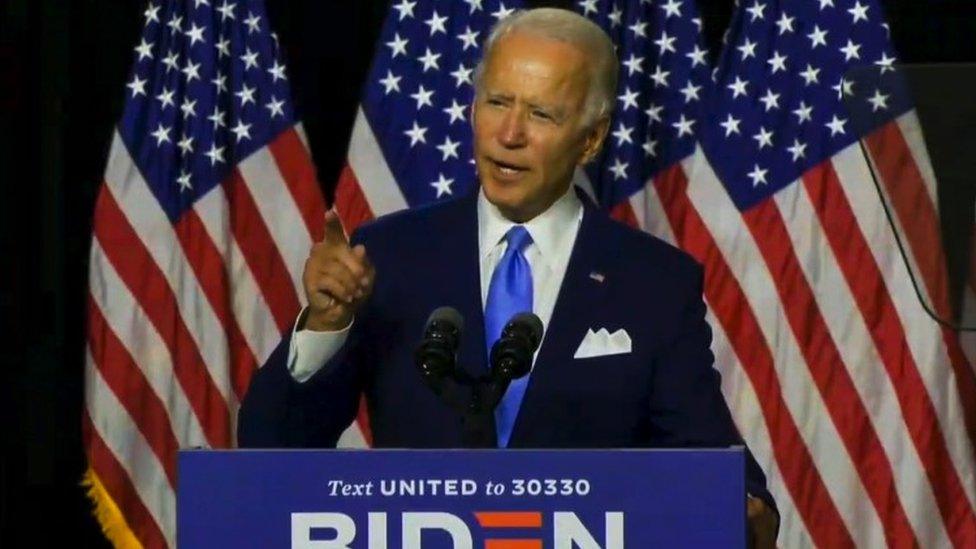
Joe Biden has said that President Trump could try to steal the election
Of course, this might not happen. Mr Trump could win by a landslide and Mr Biden accept defeat immediately. Or Mr Biden could win the popular vote on the night, and Mr Trump could go graciously.
But all of the evidence so far suggests that's not going to happen.
And that could mean serious problems for not just the United States, but the future of social media itself.
- Published24 September 2020
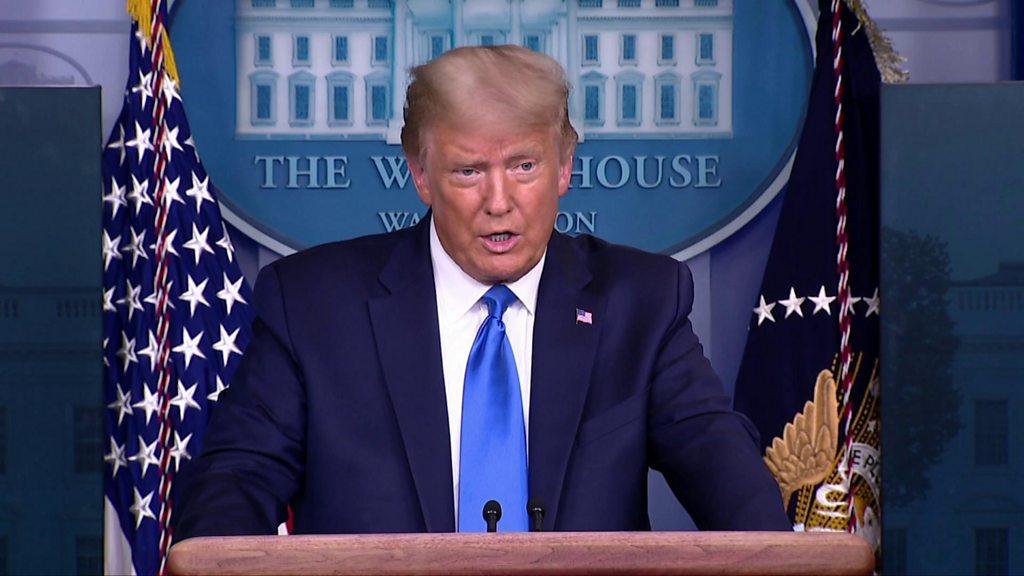
- Published6 November 2020
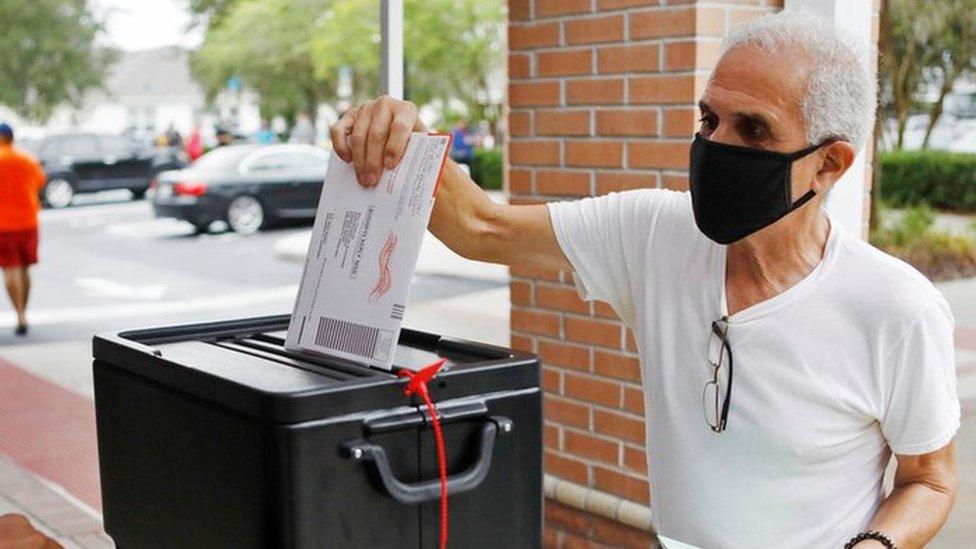
- Published24 September 2020
